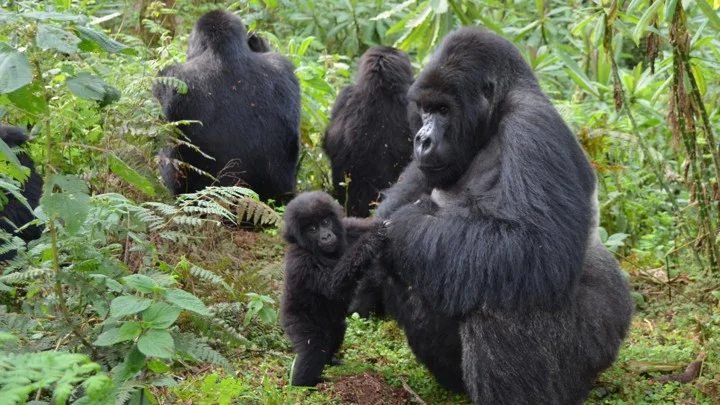Male Gorillas With Engaged Parenting Skills For All Babies In Group Produce More Offspring
/THE DIAN FOSSEY GORILLA FUND
Male Gorillas With Engaged Parenting Skills For All Babies In Group Produce More Offspring
By Stacy Rosenbaum, Postdoctoral Fellow, University of California, Los Angeles. First published on The Conversation.
Paternal care – where fathers care for their children – is rare among mammals (that is, animals which give birth to live young). Scientists have identified more than 6,000 mammal species, but paternal care only occurs in 5 to 10% of them.
Humans fall into that category, along with species like mice and lions. There are also a number of South American monkey species where males take on equal or greater childcare burdens than females. But these species are the exceptions, not the rule.
Scientists believe the reason so many male mammals don’t get involved in caring for their young is because they get higher “returns on investment” if their energy is spent seeking out more mating opportunities rather than actively parenting. Simply put, male mammals that spend their time producing more infants rather than taking care of the ones they have will leave behind more offspring. Over time, natural selection favours males who use this strategy, so fathering behaviour rarely gains an evolutionary foothold.
Mountain gorillas, found in the mountains of Rwanda, Uganda and the Democratic Republic of Congo, are among the exceptions to the rule.
Though mountain gorilla groups are full of complex social dynamics, just as human families are, in many groups some of the strongest social bonds we observe are between adult males and infants – even when the infants aren’t the males’ own offspring. From the time that young gorillas are old enough to move away from their mothers, they follow males everywhere. Males, in turn, are extremely tolerant. Some regularly hold, play with, groom, and let infants sleep in their nests with them.
In a recent study, my colleagues and I set out to determine why this might be the case, since this behaviour didn’t seem to only benefit their own infants. We found that the gorillas who spent the most time with any young, not just their own, also sired the most infants.





